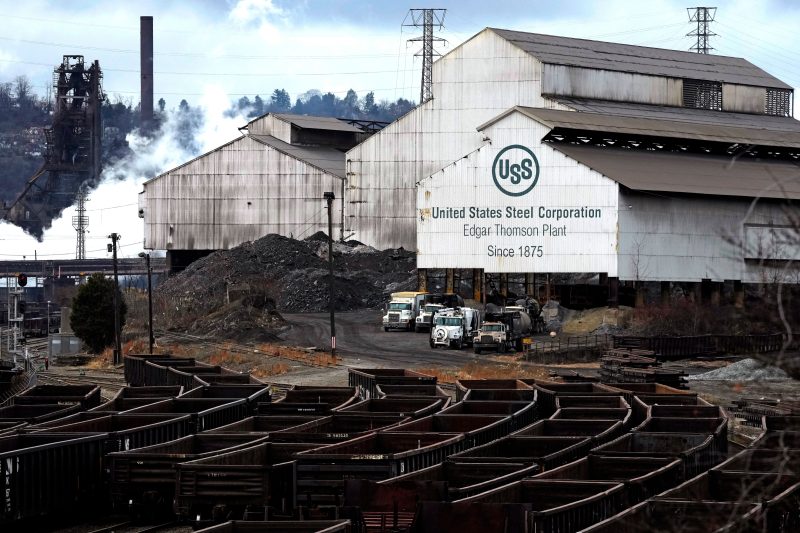President Biden plans to unveil on Wednesday a series of new protections for the U.S. steel industry, as he moves to combat what the White House calls “unfair” Chinese competition and shore up his political fortunes in the battleground states of Pennsylvania and Ohio.
In remarks scheduled for the United Steelworkers Union in Pittsburgh, the president will call for more than tripling the existing 7.5 percent tariff on Chinese steel and aluminum imports, new pressure on Mexico to prevent China from shipping metals to the United States via Mexican ports, and an investigation of Chinese subsidies for its shipbuilding industry.
That probe, to be launched Wednesday by the office of U.S. Trade Representative Katherine Tai, could lead to the imposition of fresh tariffs or other penalties on Chinese vessels. The investigation is a response to a petition from the United Steelworkers and four other unions last month.
The actions are just the latest sign of the president’s determination to be seen as a defender of the steel industry, whose workers are spread across states in the industrial Midwest that could decide the election. In March, the president made an unusually direct comment about a pending corporate acquisition, saying it was “vital” that U.S. Steel remain American-owned.
Nippon Steel, a larger and more profitable Japanese company, has agreed to acquire the once-famed American steelmaker for $14.9 billion. The deal is being reviewed for potential national security issues by a Treasury Department-led committee.
The burst of industry-specific safeguards is likely to cheer the president’s union audience Wednesday. But it could raise costs for industries that use steel, which employ far more workers.
Biden’s likely opponent this fall, former president Donald Trump, is courting the same voters with his own brand of economic nationalism. The Republican has said he will impose an across-the-board tariff of 10 percent on all foreign products and a 60 percent levy on Chinese imports, a move many economists say would stoke inflation.
The mix of tariffs and investigations also represent Biden’s sharpest actions to date to prevent China from unleashing on global markets an avalanche of low-cost goods, at a time when demand in its domestic economy is weak.
Treasury Secretary Janet L. Yellen recently returned from a visit to Beijing, where she warned Chinese officials that the United States would not accept a second “China shock,” a reference to the impact of China’s economic rise in the early 2000s on U.S. manufacturers. China’s routine use of subsidies and other preferences for favored companies has resulted in excess capacity in traditional sectors like steelmaking and the emerging industries of clean energy.
“China’s policy-driven overcapacity poses a serious risk to the future of the American steel and aluminum industry. China cannot export its way to recovery. China is simply too big to play by its own rules. In manufacturing sectors like steel, China is already producing more than China or the world can easily absorb,” said Lael Brainard, director of the National Economic Council, who briefed reporters on the president’s actions.
China’s steel production is equal to roughly half of global demand for the industrial metal, and its export prices are about 40 percent lower than what U.S. steelmakers charge, according to the administration.
Still, current Chinese imports amount to just 0.6 percent of total U.S. steel demand, according to a second White House official who spoke on background, under the administration’s ground rules for such calls.
The 25 percent tariffs Biden wants on Chinese steel and aluminum would come after the U.S. Trade Representative concludes its long-running review of existing trade barriers on goods from China.
The administration expects the tariffs to have “no inflationary” effect, since they apply to such a limited set of goods, the official added.
Biden administration officials have been pressing Mexico for months to address a sharp increase in shipments of steel and aluminum to the United States. Tai has accused Mexico of violating a 2019 agreement that led to the removal of Trump’s 25 percent tariff, imposed in 2018.
U.S. officials have held several rounds of talks with their Mexican counterparts, including this week. Mexican officials have rejected claims that the shipments violate the vaguely worded agreement.
“The administration is correct that the problem is Chinese overcapacity. The real question is how do you make them eat it,” said William Reinsch, a trade specialist with the Center for Strategic and International Studies.






























